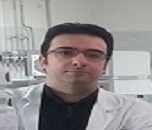Theme: Healthier the Food, Merrier the World
Food Safety 2018
8th International Conference on Food Safety & Regulatory Measures is scheduled to be held during June 11-12, 2018 at Barcelona, Spain. It will coordinate all meetings with our Editorial board members and other experts in Food safety, Food microbiology, Food preservation, Food biotechnology, Food chemistry, Food-borne diseases & Probiotics across the world.
Track 01: Food Safety
Food safety indicates to those hazards that have physical, chemical and microbiological effects it makes food injurious to the health. It also describes handling, preparation and storage of food in order to prevent foodborne illness. Food safety often overlaps with food defense to prevent harm to consumers. Food can transmit disease from person to person as well as serve as a growth medium for bacteria that can cause food poisoning. So food safety is a significant public health issue. Every year death of approximately 2 million people occurs due to unsafe food. More than 200 diseases occur because of harmful bacteria, viruses, parasites or chemical substances in food.
Recommended conferences:
Food Safety Conferences | Food Conferences | Food Standards Conferences | Food Safety Events
Related Conferences:
21st Euro-Global Food and Beverages Conferences, March 8-10, 2018, Berlin, Germany; 23rd Global Food Summit, May 14-16, 2018, Rome, Italy; 8th International Conference on Food Safety Conferences, June 11-13, 2018, Barcelona, Spain; 5th Global Plant Genomics Conferences, June 20-21, 2018, Rome, Italy; 12th International Oceanography Conferences, June 28-30, 2018, Berlin, Germany; 3rd International Food Packaging Conferences, July 16-18, 2018, Rome, Italy; 6th Global Plant Science Conferences, October 29-30, 2018, Valencia, Spain; 21st International Food Processing Conferences, October 11-13, 2018, Moscow, Russia; 6th International Fitness Events, August 16-18, 2018, Dublin, Ireland; 19th International Congress on Nutrition & Health Conferences, April 12-14, 2018, Amsterdam, Netherlands; 15th International Clinical Nutrition Summit, May 24-26, 2018, Vienna, Austria; 21st European Nutrition and Dietetics Conference, June 11-13, 2018, Dublin, Ireland; 14th International Nutraceuticals Conferences, July 19-20, 2018, London, UK; 10th Euro-Global Fisheries Conferences, March 5-6, 2018, Paris, France; 11th World Plant Biotechnology Conferences, March 5-7, 2018, Paris, France; 26th International ICFMH Conference, Food Micro 2018, September 3-6, 2018, Berlin, Germany; Food Technology, May 14-16, 2018, Rome, Italy; 5th International ISEK_Food Conference, July 3-5, 2018, Germany; 3rd Food Technology Congress, October 10-12, 2018, Cappadocia, Turkey; The Global Food Safety Conference, 5-8 March 2018, Tokyo, Japan
Related Societies:
Europe: Society of Food Hygiene and Technology (SOFHT), Norwegian Food Safety Authority, European Food Safety Authority, UK Food Associations, Safe Foods
USA: International Association for Food Protection, Food and Agricultural Organization, Association of Food Industry, American Society for Nutrition, National Food Product Associations
Asia: Chinese American Food Society, Asia Pacific American Food Society, Nutrition Society of Malaysia, Food Society
Track 02: Food Safety Laws and Regulations
An effective food legislation and food control is required for every nation to promote a safety food supply to protect consumers from contaminated foods. Food law is divided in two parts; Food Act and Food Regulations. Food act sets broad principle and Food Regulation contains detailed provisions. Incorporation in the law of detailed specifications about food standards, food processing, food hygienic practices, food packaging and food labeling may make for difficulties. A revision of regulations is necessary because of new scientific knowledge, changes in food processing technology to protect public health. So food law is based on scientific studies. From the late twentieth century harmonization of Food Law on the international level is a worldwide trend. In order to promote a safe, honesty food supply and to prohibit the sale of foods that are unsafe, contaminated, and adulterated every nation needs an effective food legislation and food control service. Food is governed by a complexity of laws and regulations which set out the government’s requirements to be met by people to ensure the food is safe and of adequate quality. Generally food law can be divided in to two parts: a basic food act, regulations. These laws and regulations implement on practices that are related to food labeling, food hygiene, food additives and pesticide residues, as well as policies on biotechnology and food guidelines for the management of governmental import and export inspection certification systems for foods. The proper implementing of such law encourages fair trade practices through compliance with the basic provisions of food law.
Recommended conferences:
Food Events | Food Safety Meetings | Europe Food Conferences | Food Technology
Related Conferences:
21st Euro-Global Food and Beverages Conferences, March 8-10, 2018, Berlin, Germany; 23rd Global Food Summit, May 14-16, 2018, Rome, Italy; 8th International Conference on Food Safety Conferences, June 11-13, 2018, Barcelona, Spain; 5th Global Plant Genomics Conferences, June 20-21, 2018, Rome, Italy; 12th International Oceanography Conferences, June 28-30, 2018, Berlin, Germany; 3rd International Food Packaging Conferences, July 16-18, 2018, Rome, Italy; 6th Global Plant Science Conferences, October 29-30, 2018, Valencia, Spain; 21st International Food Processing Conferences, October 11-13, 2018, Moscow, Russia; 6th International Fitness Events, August 16-18, 2018, Dublin, Ireland; 19th International Congress on Nutrition & Health Conferences, April 12-14, 2018, Amsterdam, Netherlands; 15th International Clinical Nutrition Summit, May 24-26, 2018, Vienna, Austria; 21st European Nutrition and Dietetics Conference, June 11-13, 2018, Dublin, Ireland; 14th International Nutraceuticals Conferences, July 19-20, 2018, London, UK; 10th Euro-Global Fisheries Conferences, March 5-6, 2018, Paris, France; 11th World Plant Biotechnology Conferences, March 5-7, 2018, Paris, France; ICFSPT 2018: 20th International Conference on Food Safety and Packaging Technologies, January 29-30, 2018, Sydney, Australia; Food and Drug Law Institute Annual Conferences, May 3-4,2018, Washington, DC; ICFSS 2018: 20th International Conference on Food Safety and Sanitation, 24-25 September 2018, Dubai, UAE; Food Safety and Food Science, February 26 - March 1, 2018, Florida, USA; Food Safety Summit, May 7-10 2018, Rosemont, Illinois
Related Societies:
Europe: Food and Rural Affairs, Food Standards Agency, Public Health and Food Safety, Federal Ministry of Food Agriculture and Consumer Protection, Microbiological Safety of Food Funders Group
USA: Food Packaging Association, Food Processing Supplier Association, Flexible Food Packaging Association, New Jersey Processing Association, National Food Processor Association
Asia: Food Safety South East Asia World Health Organization, Singapore Food Manufacturing Association, Food Technology Asia, The Thai Packaging Association, Taiwan Frozen Food Processor Association
Track 03: Food Hazards and HACCP
Food safety hazard refers to any agent with the potential to cause adverse health consequences for consumers. Food safety hazards occur when food is exposed to hazardous agents which result in contamination of that food. Food hazards may be biological, chemical, physical, allergenic, nutritional and/or biotechnology-related. Hazards may be introduced into the food supply any time during harvesting, formulation and processing, packaging and labeling, transportation, storage, preparation, and serving. Hazard characterization with respect to foods began as a means to help prioritize risks and categorize hazards. Characterization of hazards is more important than ever in developing food safety control programs. Hazard analysis and critical control points or HACCP is a systematic preventive approach to food safety from biological, chemical, and physical hazards in production processes that can cause the finished product to be unsafe, and designs measurements to reduce these risks to a safe level.
Recommended conferences:
Global Food Safety Conferences | Aqua Food Meetings | Annual Agri Food Meetings | Food Safety Congress
Related Conferences:
21st Euro-Global Food and Beverages Conferences, March 8-10, 2018, Berlin, Germany; 23rd Global Food Summit, May 14-16, 2018, Rome, Italy; 8th International Conference on Food Safety Conferences, June 11-13, 2018, Barcelona, Spain; 5th Global Plant Genomics Conferences, June 20-21, 2018, Rome, Italy; 12th International Oceanography Conferences, June 28-30, 2018, Berlin, Germany; 3rd International Food Packaging Conferences, July 16-18, 2018, Rome, Italy; 6th Global Plant Science Conferences, October 29-30, 2018, Valencia, Spain; 21st International Food Processing Conferences, October 11-13, 2018, Moscow, Russia; 6th International Fitness Events, August 16-18, 2018, Dublin, Ireland; 19th International Congress on Nutrition & Health Conferences, April 12-14, 2018, Amsterdam, Netherlands; 15th International Clinical Nutrition Summit, May 24-26, 2018, Vienna, Austria; 21st European Nutrition and Dietetics Conference, June 11-13, 2018, Dublin, Ireland; 14th International Nutraceuticals Conferences, July 19-20, 2018, London, UK; 10th Euro-Global Fisheries Conferences, March 5-6, 2018, Paris, France; 11th World Plant Biotechnology Conferences, March 5-7, 2018, Paris, France; Food and Drug Law Institute Annual Conference, 3-4 May 2018, Washington, DC; ICAFP 2018 : 20th International Conference on Advanced Food Packaging, May 28-29, 2018, Tokyo, Japan; 2018 4th International Conference on Food and Environmental Sciences (ICFES 2018), 25-27 February 2018, Da Nang, Vietnam, FOOD SAFETY AMERICAS 2018, 22 - 23 May 2018, Nashville, Tennessee; North American Summit on Food Safety, 30 April – 01 May 2018, Toronto, Canada
Related Societies:
Europe: Safe Foods, Institute of Food Research, NSF Public Health and Safety Organization, Food Standards Agency, Society of Food Hygiene and Technology (SOFHT)
USA: Association of Food Industry, National Food Product Associations, Flexible Food Packaging Association, American Society for Nutrition, Specialty Food Association
Asia: Asia Pacific American Food Society, Michigan Food Processors Association, Agricultural and Food Marketing Association, Midwest Food Processors Association (MWFPA), Chinese American Food Society
Track 04: Risk Analysis and Management
The safety of food has been advanced substantially by the introduction and implementation of the Hazard Analysis of Critical Control Point (HACCP) concept. HACCP provides a systematic conceptual framework for identifying food hazards and focusing efforts on the proper functioning of key food production, food processing and marketing steps. The complexity of the pre-harvest, harvest, and post-harvest environments make it impossible to control all potential sources of food contamination. Efforts at prevention and control are implemented throughout the food production and food processing system. Researchers are continually searching for a better understanding of the pathogens and their interaction with the environment, leading to improved control technologies. But at the same time, the pathogens continue to evolve, and human actions sometimes drive that evolution. Even small environmental changes can have unforeseen or even unforeseeable impact on microbial populations. Improved understanding of these complex factors provides insight into pathogen evolution and opens the door to new and improved prevention and control methods.
Recommended conferences:
Euro Food Safety | Global Sea Food Events | Food Standards Conferences | Food Safety Congress
Related Conferences:
21st Euro-Global Food and Beverages Conferences, March 8-10, 2018, Berlin, Germany; 23rd Global Food Summit, May 14-16, 2018, Rome, Italy; 8th International Conference on Food Safety Conferences, June 11-13, 2018, Barcelona, Spain; 5th Global Plant Genomics Conferences, June 20-21, 2018, Rome, Italy; 12th International Oceanography Conferences, June 28-30, 2018, Berlin, Germany; 3rd International Food Packaging Conferences, July 16-18, 2018, Rome, Italy; 6th Global Plant Science Conferences, October 29-30, 2018, Valencia, Spain; 21st International Food Processing Conferences, October 11-13, 2018, Moscow, Russia; 6th International Fitness Events, August 16-18, 2018, Dublin, Ireland; 19th International Congress on Nutrition & Health Conferences, April 12-14, 2018, Amsterdam, Netherlands; 15th International Clinical Nutrition Summit, May 24-26, 2018, Vienna, Austria; 21st European Nutrition and Dietetics Conference, June 11-13, 2018, Dublin, Ireland; 14th International Nutraceuticals Conferences, July 19-20, 2018, London, UK; 10th Euro-Global Fisheries Conferences, March 5-6, 2018, Paris, France; 11th World Plant Biotechnology Conferences, March 5-7, 2018, Paris, France; Conference for Food Protection 2018 Biennial Meeting, April 16-20, 2018, Richmond, Virginia; Northwest Food & Beverage World, January 8-10, 2018, Portland, OR; Food Processing Expo 2018, February 21-22, 2018, Sacramento; Anuga FoodTec, March 20-23, 2018, Cologne, Germany; IFT Food Expo, July 15-18, 2018, Las Vegas, USA
Related Societies:
Europe: Food and Rural Affairs, European Food Safety Authority, Norwegian Food Safety Authority, Society of Food Hygiene and Technology (SOFHT), Institute of Food Research
USA: International Association for Food Protection, Food Packaging Association, American Society for Nutrition, National Food Product Associations, Flexible Food Packaging Association
Asia: Singapore Food Manufacturing Association, Taiwan Frozen Food Processor Association, Food Technology Asia, Food Safety South East Asia World Health Organization, Asia Pacific American Food Society
Track 05: Food Safety Surveillance System
The surveillance systems have a dual purpose. First is to detect, control and prevent foodborne disease outbreaks. Most of the countries have such surveillance and response systems in place, but the effectiveness and coverage of those systems vary from country to country. Many people outline such foodborne disease outbreak investigations, including their detection and control through food safety mechanisms and discuss the food safety response including the importance of developing emergency response plans for food safety. The second is to inform long-term issues, like identifying priorities and developing policy for the control and prevention of foodborne diseases; estimating the burden of foodborne diseases and monitoring trends; and evaluating foodborne disease prevention and control strategies. However, only a few countries have surveillance systems in place that can meet these objectives, severely impacting the efficiency of their food control systems.
Recommended conferences:
Global Food Events | Fishers Food Events | Agri Food Conferences | Food Standard Conferences
Related Conferences:
21st Euro-Global Food and Beverages Conferences, March 8-10, 2018, Berlin, Germany; 23rd Global Food Summit, May 14-16, 2018, Rome, Italy; 8th International Conference on Food Safety Conferences, June 11-13, 2018, Barcelona, Spain; 5th Global Plant Genomics Conferences, June 20-21, 2018, Rome, Italy; 12th International Oceanography Conferences, June 28-30, 2018, Berlin, Germany; 3rd International Food Packaging Conferences, July 16-18, 2018, Rome, Italy; 6th Global Plant Science Conferences, October 29-30, 2018, Valencia, Spain; 21st International Food Processing Conferences, October 11-13, 2018, Moscow, Russia; 6th International Fitness Events, August 16-18, 2018, Dublin, Ireland; 19th International Congress on Nutrition & Health Conferences, April 12-14, 2018, Amsterdam, Netherlands; 15th International Clinical Nutrition Summit, May 24-26, 2018, Vienna, Austria; 21st European Nutrition and Dietetics Conference, June 11-13, 2018, Dublin, Ireland; 14th International Nutraceuticals Conferences, July 19-20, 2018, London, UK; 10th Euro-Global Fisheries Conferences, March 5-6, 2018, Paris, France; 11th World Plant Biotechnology Conferences, March 5-7, 2018, Paris, France; 17th Food Colloids Conference: Application of Soft Matter Concepts, April 8- 11, 2018, UK; 3rd Food Structure Design, September 20-22th 2018, Hungary; 2nd International Conference & Expo on Food Science, August 23-25, 2018, Las Vegas, USA; 14th Congress of the European Society for Agricultural and Food Ethics, June 13th-16th, Vienna; FOODSIM'2018, April 8-12, 2018, Ghent, Belgium
Related Societies:
Europe: Food Standards Agency, Public Health and Food Safety, European Food Safety Authority, Federal Ministry of Food Agriculture and Consumer Protection, Food Standards Agency
USA: Food and Agricultural Organization, Association of Food Industry, International Association for Food Protection, Food Packaging Association, New Jersey Processing Association
Asia: Midwest Food Processors Association (MWFPA), Taiwan Frozen Food Processor Association, Agricultural and Food Marketing Association, Food Technology Asia, Chinese American Food Society
Track 06: Food Safety Operations in Food Processing, Handling and Distribution
Advances in Food quality and processing encompass, product design and process control, application of good food hygienic practices, throughout production Processing, food labeling, food Handling, food distribution ,storage Sale ,preparation ,use The above in synchrony with HACCP system, application include to the complete food chain, Production on the farm through to the consumer. Food processor must have systems in place to assure that products which are being manufactured do not have physical, chemical or microbial contaminants introduced during processing and packaging. Some sources of potential contamination include animal waste fertilizers, contaminated irrigation water, human handling practices, contaminated containers, inadequate postharvest washing, improper packaging, poor temperature management and contamination in the food preparation area. If food safety systems are not in place during processing, thousands of consumers are at risk. A single incident of personal injury traced back to a specific food processor may put that company out business and result in criminal prosecution of the owners and management. Systems which assure the safety and wholesomeness during food processing fall into three categories like Good Manufacturing Practices (GMP's), Sanitation Procedures and Hazard analysis and critical control points (HACCP). Food safety begins during production, so the production and postharvest handling of raw ingredients should be carefully monitored.
Recommended conferences:
Food Summit | Food Events | Food Safety Conference | Food Technology
Related Conferences:
21st Euro-Global Food and Beverages Conferences, March 8-10, 2018, Berlin, Germany; 23rd Global Food Summit, May 14-16, 2018, Rome, Italy; 8th International Conference on Food Safety Conferences, June 11-13, 2018, Barcelona, Spain; 5th Global Plant Genomics Conferences, June 20-21, 2018, Rome, Italy; 12th International Oceanography Conferences, June 28-30, 2018, Berlin, Germany; 3rd International Food Packaging Conferences, July 16-18, 2018, Rome, Italy; 6th Global Plant Science Conferences, October 29-30, 2018, Valencia, Spain; 21st International Food Processing Conferences, October 11-13, 2018, Moscow, Russia; 6th International Fitness Events, August 16-18, 2018, Dublin, Ireland; 19th International Congress on Nutrition & Health Conferences, April 12-14, 2018, Amsterdam, Netherlands; 15th International Clinical Nutrition Summit, May 24-26, 2018, Vienna, Austria; 21st European Nutrition and Dietetics Conference, June 11-13, 2018, Dublin, Ireland; 14th International Nutraceuticals Conferences, July 19-20, 2018, London, UK; 10th Euro-Global Fisheries Conferences, March 5-6, 2018, Paris, France; 11th World Plant Biotechnology Conferences, March 5-7, 2018, Paris, France; Westminster Food & Nutrition Forum, 1st February 2018, London, 10th Annual American Food Innovate Summit, March 26-27, 2018, Chicago; 6th Annual American Food Sure Summit, March 26 & 27, 2018, Chicago; AFFI-CON 2018, March 3-6, 2018, Las Vegas; Food&HotelAsia2018 (FHA2018), April 24 – 27 2018, Singapore
Related Societies:
Europe: Food Standards Agency, Norwegian Food Safety Authority, Microbiological Safety of Food Funders Group, NSF Public Health and Safety Organization, Society of Food Hygiene and Technology (SOFHT)
USA: American Society for Nutrition, National Food Processor Association, Food Processing Supplier Association, Food Packaging Association, Association of Food Industry
Asia: Singapore Food Manufacturing Association, The Thai Packaging Association, Chinese American Food Society, Michigan Food Processors Association, Southeastern Food Processors Association (SFPA)
Track 07: Food Preservation and Quality Standard
Food preservation on the other hand fundamentally aiming at minimizing post-harvest losses of food while improving the shelf-life and value supplement. As food safety concerns started to surface with food borne illnesses, food safety management systems slowly progressed and developed to today's sophisticated levels. Food quality standards have benchmarked the required level of food quality criterion, linking the safety management systems to the desired quality. Food quality is an important food manufacturing requirement, because food consumers are susceptible to any kind of contamination that may occur during manufacturing process. It is important to ensure that the food processing environment is clean in order to produce the safest possible food for the consumer. The important components of food quality are: food safety, sensory characteristics and nutritional value. Nutritive value is one of the important characteristics, which is now considered by the consumers as a quality attribute. Safety of food is a basic requirement of food quality. Considering the importance of quality standards and food management system in maintaining food safety and security abstracts are invited from the research outputs from these areas.
Recommended conferences:
Global Food Safety Conferences | Food Standards Conferences | Aqua Food Meetings| Europe Food Conferences
Related Conferences:
21st Euro-Global Food and Beverages Conferences, March 8-10, 2018, Berlin, Germany; 23rd Global Food Summit, May 14-16, 2018, Rome, Italy; 8th International Conference on Food Safety Conferences, June 11-13, 2018, Barcelona, Spain; 5th Global Plant Genomics Conferences, June 20-21, 2018, Rome, Italy; 12th International Oceanography Conferences, June 28-30, 2018, Berlin, Germany; 3rd International Food Packaging Conferences, July 16-18, 2018, Rome, Italy; 6th Global Plant Science Conferences, October 29-30, 2018, Valencia, Spain; 21st International Food Processing Conferences, October 11-13, 2018, Moscow, Russia; 6th International Fitness Events, August 16-18, 2018, Dublin, Ireland; 19th International Congress on Nutrition & Health Conferences, April 12-14, 2018, Amsterdam, Netherlands; 15th International Clinical Nutrition Summit, May 24-26, 2018, Vienna, Austria; 21st European Nutrition and Dietetics Conference, June 11-13, 2018, Dublin, Ireland; 14th International Nutraceuticals Conferences, July 19-20, 2018, London, UK; 10th Euro-Global Fisheries Conferences, March 5-6, 2018, Paris, France; 11th World Plant Biotechnology Conferences, March 5-7, 2018, Paris, France; Fine Food New Zealand, June 24- 26, 2018, Auckland, NZ; Food Ingredients Asia, October 3- 5, 2018, Indonesia; Food West Africa, May 08 – 10, 2018, Lagos, Nigeria; Food Safety & Compliance Conference, Mar 2018 5 - 6, Auckland; FOOD & BEVERAGE • AGRO & AGRO-PROCESSING • MILLING & FEED • HOSPITALITY & FOODSERVICE, APRIL 25-27, 2018, NAIROBI, KENYA
Related Societies:
Europe: Safe Foods, Federal Ministry of Food Agriculture and Consumer Protection, Public Health and Food Safety, Food Standards Agency, Institute of Food Research
USA: Food Packaging Association, Food Processing Supplier Association, Association of Food Industry, New Jersey Processing Association, National Food Product Associations
Asia: Asia Pacific American Food Society, Southeastern Food Processors Association (SFPA), Food Safety South East Asia World Health Organization, Food Technology Asia, Midwest Food Processors Association (MWFPA)
Track 08: Food Safety in Retail Foods
Every food business is required to follow the legal requirements for food safety. The general principles of food safety require every business operator along the food chain to ensure that the safety of food is maintained. Grocery store activities can cover a wide range, including food processing and food serving, so operators need to follow a wide set of safety procedures. Grocery stores that produce fresh and cooked foods in store are required to follow the same food safety procedures as restaurants and other food serving businesses. Retail stores can apply the same safety principles based on HACCP as the food processing industry, but adapted for the much more varied conditions and production. HACCP principles are applied to protect food from biological, physical and chemical food safety hazards by applying controls that prevent direct contamination and cross contamination. Hazards can be introduced anywhere in the supply chain from production on farm to transport and during storage and processing in the retail store. Raw animal products such as meat, eggs, fish and shellfish, and especially poultry, can carry microorganisms that are harmful to the consumer. In store, staff surfaces and equipment can introduce hazards to the food.
Recommended conferences:
Global Sea Food Events | Europe Food Conferences | Annual Agri Food Meetings | Food Safety
Related Conferences:
21st Euro-Global Food and Beverages Conferences, March 8-10, 2018, Berlin, Germany; 23rd Global Food Summit, May 14-16, 2018, Rome, Italy; 8th International Conference on Food Safety Conferences, June 11-13, 2018, Barcelona, Spain; 5th Global Plant Genomics Conferences, June 20-21, 2018, Rome, Italy; 12th International Oceanography Conferences, June 28-30, 2018, Berlin, Germany; 3rd International Food Packaging Conferences, July 16-18, 2018, Rome, Italy; 6th Global Plant Science Conferences, October 29-30, 2018, Valencia, Spain; 21st International Food Processing Conferences, October 11-13, 2018, Moscow, Russia; 6th International Fitness Events, August 16-18, 2018, Dublin, Ireland; 19th International Congress on Nutrition & Health Conferences, April 12-14, 2018, Amsterdam, Netherlands; 15th International Clinical Nutrition Summit, May 24-26, 2018, Vienna, Austria; 21st European Nutrition and Dietetics Conference, June 11-13, 2018, Dublin, Ireland; 14th International Nutraceuticals Conferences, July 19-20, 2018, London, UK; 10th Euro-Global Fisheries Conferences, March 5-6, 2018, Paris, France; 11th World Plant Biotechnology Conferences, March 5-7, 2018, Paris, France; 48th Food + Beverage Environmental Conference, March 25-28, 2018, New Mexico; Neutrons and Food conference 2018, October 16-19, 2018, Sydney, Australia; Africa Food Manufacturing, April 22-24, 2018 , Cairo, Egypt; Foodtech Barcelona, May 11-8, 2018, Barcelona, Spain; ICFSN 2018: 20th International Conference on Food Science and Nutrition, August 27 - 28, 2018, Paris, France
Related Societies:
Europe: Society of Food Hygiene and Technology (SOFHT), Safe Foods, Institute of Food Research, Norwegian Food Safety Authority, NSF Public Health and Safety Organization
USA: Association of Food Industry, Food Packaging Association, National Food Product Associations, Flexible Food Packaging Association, National Food Processor Association
Asia: Southeastern Food Processors Association (SFPA), Food Technology Asia, Agricultural and Food Marketing Association, Michigan Food Processors Association, Food Safety South East Asia World Health Organization
Track 09: Food Borne Disease and Its Prevention
Foodborne illness can affect anyone who eats contaminated food; however, certain populations are more susceptible to becoming ill with a greater severity of illness. These populations include infants and children, the elderly, pregnant women, people taking certain kinds of medications or immune suppressed. Symptoms of foodborne illness include upset stomach, abdominal cramps, nausea, vomiting, diarrhea, fever, and dehydration; they can range from mild to severe and death. To prevent foodborne illness, it is necessary to understand how food becomes unsafe to eat and what proactive measures can be taken to keep food safe. Pathogens can cause different types of foodborne illness. Once a contaminated food is eaten, illness can be caused by the pathogens themselves, caused by toxins produced in the food by pathogens and caused by toxins produced in the body by pathogens.
Recommended conferences:
Food Events | Food Standards Conferences | Euro Food Safety |Global Food Summit
Related Conferences:
21st Euro-Global Food and Beverages Conferences, March 8-10, 2018, Berlin, Germany; 23rd Global Food Summit, May 14-16, 2018, Rome, Italy; 8th International Conference on Food Safety Conferences, June 11-13, 2018, Barcelona, Spain; 5th Global Plant Genomics Conferences, June 20-21, 2018, Rome, Italy; 12th International Oceanography Conferences, June 28-30, 2018, Berlin, Germany; 3rd International Food Packaging Conferences, July 16-18, 2018, Rome, Italy; 6th Global Plant Science Conferences, October 29-30, 2018, Valencia, Spain; 21st International Food Processing Conferences, October 11-13, 2018, Moscow, Russia; 6th International Fitness Events, August 16-18, 2018, Dublin, Ireland; 19th International Congress on Nutrition & Health Conferences, April 12-14, 2018, Amsterdam, Netherlands; 15th International Clinical Nutrition Summit, May 24-26, 2018, Vienna, Austria; 21st European Nutrition and Dietetics Conference, June 11-13, 2018, Dublin, Ireland; 14th International Nutraceuticals Conferences, July 19-20, 2018, London, UK; 10th Euro-Global Fisheries Conferences, March 5-6, 2018, Paris, France; 11th World Plant Biotechnology Conferences, March 5-7, 2018, Paris, France; 2018 FOOD & NUTRITION CONFERENCE & EXPO (FNCE) - ACADEMY OF NUTRITION AND DIETETICS, October 20-23, 2018, Washington, DC; 3rd International Conference on Food Properties, January 22-24, 2018, United Arab Emirates; North American Food Safety & Quality 2018, June 5-6, 2018, Chicago; Gulfood, February 18 - 22, 2018, Dubai, United Arab Emirates; ICFEB - International Conference on Food Engineering and Biotechnology, February 27 - 28, 2018 , Dubai, United Arab Emirates
Related Societies:
Europe: Food and Rural Affairs, Food Standards Agency, Public Health and Food Safety, Federal Ministry of Food Agriculture and Consumer Protection, Microbiological Safety of Food Funders Group
USA: American Society for Nutrition, National Food Processor Association, Food Processing Supplier Association, Food Packaging Association, Association of Food Industry
Asia: Chinese American Food Society, Asia Pacific American Food Society, Nutrition Society of Malaysia, Food Society
Track 10: Food Allergies and Intolerance
A food allergy is an abnormal reaction of the body's immune system to a particular food. This tends to cause unpleasant and unwanted effects (symptoms). There are different types of food allergy, depending on which part of the immune system responds. The acute, sudden-onset reactions tend to be caused by antibodies called immunoglobulin E (IgE). Those parts of the food causing allergic reactions are usually proteins and are called allergens. Most of these allergens can still cause reactions even after they are cooked or have undergone digestion in the intestines. Exceptions are fruits & vegetables, which seem to be more allergenic when fresh. Numerous food proteins have been studied to establish allergen content. Food intolerance reactions are usually related to the amount of the food consumed. They may not occur until a certain amount (threshold level) of the food is eaten, but this amount varies for each person. Food intolerance is a chemical reaction that some people have after eating or drinking some foods; it is not an immune response. Food intolerance has been associated with asthma, chronic fatigue syndrome and irritable bowel syndrome (IBS).
Recommended conferences:
Food Safety Conferences | Food Conferences| Food Standards Conferences | Food Safety Events
Related Conferences:
21st Euro-Global Food and Beverages Conferences, March 8-10, 2018, Berlin, Germany; 23rd Global Food Summit, May 14-16, 2018, Rome, Italy; 8th International Conference on Food Safety Conferences, June 11-13, 2018, Barcelona, Spain; 5th Global Plant Genomics Conferences, June 20-21, 2018, Rome, Italy; 12th International Oceanography Conferences, June 28-30, 2018, Berlin, Germany; 3rd International Food Packaging Conferences, July 16-18, 2018, Rome, Italy; 6th Global Plant Science Conferences, October 29-30, 2018, Valencia, Spain; 21st International Food Processing Conferences, October 11-13, 2018, Moscow, Russia; 6th International Fitness Events, August 16-18, 2018, Dublin, Ireland; 19th International Congress on Nutrition & Health Conferences, April 12-14, 2018, Amsterdam, Netherlands; 15th International Clinical Nutrition Summit, May 24-26, 2018, Vienna, Austria; 21st European Nutrition and Dietetics Conference, June 11-13, 2018, Dublin, Ireland; 14th International Nutraceuticals Conferences, July 19-20, 2018, London, UK; 10th Euro-Global Fisheries Conferences, March 5-6, 2018, Paris, France; 11th World Plant Biotechnology Conferences, March 5-7, 2018, Paris, France; THE FOOD DEFENSE CONFERENCE 2018, May 22-24, 2018, Minneapolis, USA; Sensing for Agriculture and Food Quality and Safety X, April 15 – 19, 2018, United States; Fundamentals of Food Science, June 4-7, 2018, United States, Free From Functional Food Expo, May 16 - 17, 2018, Stockholm, Sweden; Everything Food Conference, May 9 - 12, 2018, USA
Related Societies:
Europe: Society of Food Hygiene and Technology (SOFHT), Safe Foods, Institute of Food Research, Norwegian Food Safety Authority, NSF Public Health and Safety Organization
USA: International Association for Food Protection, Food and Agricultural Organization, Food Packaging Association, Association of Food Industry, Food Processing Supplier Association
Asia: Food Safety South East Asia World Health Organization, Asia Pacific American Food Society, Singapore Food Manufacturing Association, Chinese American Food Society, Food Technology Asia
Track 11: Food Contamination and Chemical Toxicology
Food contamination refers to the presence in food of harmful chemicals and microorganisms which can cause consumer illness. This article addresses the chemical contamination of foods, as opposed to microbiological contamination, which can be found under foodborne illness. The impact of chemical contaminants on consumer health and well-being is often apparent only after many years of processing. Prolonged exposure at low levels. Chemical contaminants present in foods are often unaffected by thermal processing. Processing contaminants are generated during the processing of foods (e.g., heating, fermentation). They are absent in the raw materials, and are formed by chemical reactions between natural and/or added food constituents during processing. The presence of these contaminants in processed foods cannot be entirely avoided. Technological processes can be adjusted and/or optimized, however, in order to reduce the levels of formation of processing contaminants. Chemical contaminants can be classified according to the source of contamination and the mechanism by which they enter the food product. While many food contaminants have been known for decades, the formation and presence of certain chemicals in foods has been discovered relatively recently. These are the so-called emerging food contaminants like acrylamide, furan, benzene, perchlorate, perfluorooctanoic acid (PFOA), 3-monochloropropane-1,3-diol (3-MCPD), 4-hydroxynonenal, and (4-HNE).
Recommended conferences:
Euro Food Safety | Food Safety Congress |Annual Food Meetings | Food Technology
Related Conferences:
21st Euro-Global Food and Beverages Conferences, March 8-10, 2018, Berlin, Germany; 23rd Global Food Summit, May 14-16, 2018, Rome, Italy; 8th International Conference on Food Safety Conferences, June 11-13, 2018, Barcelona, Spain; 5th Global Plant Genomics Conferences, June 20-21, 2018, Rome, Italy; 12th International Oceanography Conferences, June 28-30, 2018, Berlin, Germany; 3rd International Food Packaging Conferences, July 16-18, 2018, Rome, Italy; 6th Global Plant Science Conferences, October 29-30, 2018, Valencia, Spain; 21st International Food Processing Conferences, October 11-13, 2018, Moscow, Russia; 6th International Fitness Events, August 16-18, 2018, Dublin, Ireland; 19th International Congress on Nutrition & Health Conferences, April 12-14, 2018, Amsterdam, Netherlands; 15th International Clinical Nutrition Summit, May 24-26, 2018, Vienna, Austria; 21st European Nutrition and Dietetics Conference, June 11-13, 2018, Dublin, Ireland; 14th International Nutraceuticals Conferences, July 19-20, 2018, London, UK; 10th Euro-Global Fisheries Conferences, March 5-6, 2018, Paris, France; 11th World Plant Biotechnology Conferences, March 5-7, 2018, Paris, France; FOOD CHEMISTRY 2018 - 3rd International Conference on Agricultural & Food Chemistry, July 23, 2018-July 24, 2018, Rome, Italy; World Food and Agriculture Conference 2018, March 14-16, 2018 London, United Kingdom; Food Safety Summit Conference & Expo, May 07-10, 2018, Rosemont, USA; 14th International Conference on the Applications of Magnetic Resonance in Food Science, September 17-21, 2018, Rennes, France; Global Diet and Nutrition Meeting, March 19-20, 2018, Singapore
Related Societies:
Europe: Food and Rural Affairs, Federal Ministry of Food Agriculture and Consumer Protection, Food Standards Agency, Microbiological Safety of Food Funders Group, Public Health and Food Safety
USA: American Society for Nutrition, Flexible Food Packaging Association, National Food Processor Association, New Jersey Processing Association, Specialty Food Association
Asia: Taiwan Frozen Food Processor Association, Agricultural and Food Marketing Association, Midwest Food Processors Association (MWFPA), Michigan Food Processors Association, Southeastern Food Processors Association (SFPA)
Track 12: Microbiological and Chemical Aspects of Food Safety
Microbiological hazards are one of the most indicative, causes of food poisoning. An understanding of these hazards is vitally to understanding how suitable controls may be applied Food safety/quality testing is required to obtain a certificate of testing for ready to eat and raw products at certain stages of processing Food safety testing technologies such as Polymerase chain-reaction (PCR) testing determines major pathogens like E.coli0157:H7, Listeria monocytogenes, Salmonella and Campylobacter by identify the presence of the organism's DNA ELFA Enzyme-Linked Fluorescent Assay (ELFA) exhibit pathogens by detecting their protein. Chemistry for Food Safety (FSMA) Such as Toxic Metals, Antibiotics, Mycotoxins, Melamine; Chemistry for Food distinction, such as pH, Total Solids, Water Activity, Nutrients Ingredients. Modern food safety has its roots in Chemical Aspects discipline. Initially these methods were applied to extend the food testing and over time an understanding appearance that many of these methods had the effect of making food safer for human consumption. Today these methods are used extensively in the global food sector as part of HACCP plans to consistently produce food for a mass consumption with high quality and safety.
Recommended conferences:
Food Safety Meetings | Food Events | Global Food Summit | Food Standards Conferences
Related Conferences:
21st Euro-Global Food and Beverages Conferences, March 8-10, 2018, Berlin, Germany; 23rd Global Food Summit, May 14-16, 2018, Rome, Italy; 8th International Conference on Food Safety Conferences, June 11-13, 2018, Barcelona, Spain; 5th Global Plant Genomics Conferences, June 20-21, 2018, Rome, Italy; 12th International Oceanography Conferences, June 28-30, 2018, Berlin, Germany; 3rd International Food Packaging Conferences, July 16-18, 2018, Rome, Italy; 6th Global Plant Science Conferences, October 29-30, 2018, Valencia, Spain; 21st International Food Processing Conferences, October 11-13, 2018, Moscow, Russia; 6th International Fitness Events, August 16-18, 2018, Dublin, Ireland; 19th International Congress on Nutrition & Health Conferences, April 12-14, 2018, Amsterdam, Netherlands; 15th International Clinical Nutrition Summit, May 24-26, 2018, Vienna, Austria; 21st European Nutrition and Dietetics Conference, June 11-13, 2018, Dublin, Ireland; 14th International Nutraceuticals Conferences, July 19-20, 2018, London, UK; 10th Euro-Global Fisheries Conferences, March 5-6, 2018, Paris, France; 11th World Plant Biotechnology Conferences, March 5-7, 2018, Paris, France; 7th International Conference on Nutrition and Food Sciences (ICNFS 2018), May 13-15, 2018, Lisbon, Portugal; 20th International Conference on Food Structure and Preservation, January 15-16, 2018, Zürich, Switzerland; 3rd International Conference on Food Properties (ICFP2018), January 22-24, 2018, Dubai, United Arab Emirates; 2nd Global Summit on Nutritional Science & Food Chemistry, May 24-25, 2018, Valencia, Spain; 3rd Food Structure and Functionality Forum Symposium, June 3-6, 2018, Canada; IAFP 2018 International Association for Food Protection, July 8-11, 2018, Utah, USA; 21st World Congress on Nutrition, Food Science & Public Health, July 9-10, 2018, Australia; Functional Food Center Japan, October 27-28, 2018, Osaka, Japan
Related Societies:
Europe: NSF Public Health and Safety Organization, Public Health and Food Safety, Safe Foods, Microbiological Safety of Food Funders Group, Food and Rural Affairs
USA: Specialty Food Association, International Association for Food Protection, Food and Agricultural Organization, New Jersey Processing Association, Food Processing Supplier Association
Asia: Food Technology Asia, Singapore Food Manufacturing Association, Food Safety South East Asia World Health Organization, Asia Pacific American Food Society, Chinese American Food Society
Track 13: Foodomics Approaches in Food Safety
Foodomics is defined as a discipline that studies the Food and Nutrition domains through the application and integration of advanced -omics technologies to improve consumer's well-being, health, and knowledge. Starting from the four major types of omics measurements (genomics, transcriptomics, proteomics, and metabolomics), a variety of omics sub disciplines (epigenomics, lipidomics, interactomics, metallomics, diseasomics, etc.) has emerged. We can connect the food components, foods, the diet, the individual, the health, and the diseases, due to omics approach, but it is not only the application of advanced technologies, but mainly the ability of looking at the problem with a different approach, a "Foodomics approach". Foodomics is the comprehensive, high-throughput approach for the exploitation of food science in the light of an improvement of human nutrition. Foodomics is a new approach to food and nutrition that studies the food domain as a whole with the nutrition domain to reach the main objective, the optimization of human health and well-being.
Recommended conferences:
Global Food Events | Food Technology | Europe Food Conferences | Food Technology
Related Conferences:
21st Euro-Global Food and Beverages Conferences, March 8-10, 2018, Berlin, Germany; 23rd Global Food Summit, May 14-16, 2018, Rome, Italy; 8th International Conference on Food Safety Conferences, June 11-13, 2018, Barcelona, Spain; 5th Global Plant Genomics Conferences, June 20-21, 2018, Rome, Italy; 12th International Oceanography Conferences, June 28-30, 2018, Berlin, Germany; 3rd International Food Packaging Conferences, July 16-18, 2018, Rome, Italy; 6th Global Plant Science Conferences, October 29-30, 2018, Valencia, Spain; 21st International Food Processing Conferences, October 11-13, 2018, Moscow, Russia; 6th International Fitness Events, August 16-18, 2018, Dublin, Ireland; 19th International Congress on Nutrition & Health Conferences, April 12-14, 2018, Amsterdam, Netherlands; 15th International Clinical Nutrition Summit, May 24-26, 2018, Vienna, Austria; 21st European Nutrition and Dietetics Conference, June 11-13, 2018, Dublin, Ireland; 14th International Nutraceuticals Conferences, July 19-20, 2018, London, UK; 10th Euro-Global Fisheries Conferences, March 5-6, 2018, Paris, France; 11th World Plant Biotechnology Conferences, March 5-7, 2018, Paris, France; 2018 CONFERENCE: The Agroecological Prospect: The Politics of Integrating Food and Farming with Values and the Land, June 14-16, 2018, USA; 5th International Conference on Food Oral Processing, July 01-14, 2018, UK; 20th International Conference on Food and Nutrition Technology (ICFNT), June 28 - 29, 2018, London; The First International Conference on Innovation of Functional Foods (IFFA2018), January 22-24, 2018, Thailand; International Conference on Nutrition and Food Sciences, Apr 21-22, 2018, Venice, Italy; ICFSN 2018 - 2018 5th International Conference on Food Security and Nutrition, April 08-18, 2018, Copenhagen, Denmark; 21st International Conference on Food & Nutrition, July 25-26, 2018, London, UK; 2018 4th International Conference on Food and Environmental Sciences (ICFES 2018), February 25-27, 2018 , Da Nang, Vietnam; 5th Annual Food as Medicine Conference, February 10–11, 2018, USA; Functional Food Expo, May 16 – 17, 2018, Stockholm, Sweden; The Eighth International Conference on Food Studies, October 25–26 2018, Vancouver, Canada
Related Societies:
Europe: Food Standards Agency, European Food Safety Authority, Federal Ministry of Food Agriculture and Consumer Protection, Society of Food Hygiene and Technology (SOFHT), Public Health and Food Safety
USA: Food Packaging Association, National Food Processor Association, American Society for Nutrition, Food and Agricultural Organization, Food Processing Supplier Association
Asia: Food Safety South East Asia World Health Organization, The Thai Food Packaging Association, Agricultural and Food Marketing Association, Michigan Food Processors Association, Asia Pacific American Food Society
ConferenceSeries takes immense pleasure & feels honored in inviting the contributors across the globe to International Conference on Food Safety & Regulatory Measures to be held during June 11-12, 2018 at Barcelona, Spain.
Food Safety Conferences 2018 is the premier event that brings together a unique and International mix of experts, researchers and decision makers both from academia and industry across the globe to exchange their knowledge, experience and research innovations to build a World’s food scientists, Industrialists and entrepreneurs meet.
ConferenceSeries organizes 3000+ Global Events inclusive of 600+ Conferences, 1200+ Workshops and 1200+ Symposiums on various topics of Science & Technology across the globe with support from 1000 more scientific societies.
Every year millions of people fall ill and many die as a result of eating unhealthy and unsafe food. Most of the illnesses are attributed to contaminated food. Proper food preparation and preservation can prevent most food borne diseases. The majority of people will experience a food borne disease at some point in their lives. This highlights the importance of making sure the food we eat is not contaminated with potentially harmful bacteria, viruses, parasites, toxins and chemicals. Food contamination that occurs in one place may affect the health of consumers living on the other side of the planet. So everyone along the production chain, from producer to consumer, must observe safe food handling practices.
Food Safety Event is the platform to gain or share the knowledge in the new technological developments in the field of Food safety. This conference brings together professors, researchers, and practitioners in all the areas of food related streams and provides an international forum for the spreading of approved research results, new ideas and practical developments. We are honoured to invite you all to attend and register for the conference.
This is an open event, we welcome and invite you to participate in this prestigious conference to make event as the best Food Safety event in Barcelona, Spain.
The 8th International Conference on Food Safety & Regulatory Measures is going to be held in Barcelona, Spain during June 11-12, 2018. It is the platform to gain or share the knowledge in the new technological developments in the field of Global Food safety Conferences. This conference brings together professors, researchers, and practitioners in all the areas of food related streams and provides an international forum for the spreading of approved research results, new ideas and practical developments. We are honoured to invite you all to attend and register for the conference.
Food-borne disease remains a real and formidable problem in both developed and developing countries, causing great human suffering and significant economic losses. Up to one third of the population of developed countries may be affected by food-borne diseases each year, and the problem is likely to be even more widespread in developing countries, where food and water-borne diarrheal diseases kill an estimated 2.2 million people each year, most of them children. In 2007 it was reported that in the United States, foodborne diseases result in 37.2 million illnesses, 228,744 hospitalizations, and 2,612 deaths annually.
The foodborne illness is considerable every year, 1 out of 6 people in the United States suffers from foodborne illness and more than a hundred thousand are hospitalized. Food Safety laws implement and monitor effective measures to prevent contamination, and to protect the public health. The FDA in the United States establishes science-based standards for the safe production and harvesting of fruits and vegetables to minimize the risk of serious illnesses or death. Food companies are also held accountable for preventing contamination. This is a significant milestone in the efforts to modernize the food safety system.
The food safety testing market is projected to grow reach to $4,068.8 million by 2018. In 2012, Germany was the largest market for food safety testing and it is projected to be the fastest growing market in Europe. In 2012, U.K. was second largest market followed by the France. In 2012, contaminant testing in fruit and vegetable was the largest segment in European market.
Why Europe?
According to Global Market Insights, Inc., “Food Safety Testing Market size worth USD 9 billion in 2015 is estimated to grow at a CAGR of 7% over the period of 2016-2024.” The food safety testing industry growth will also be influenced by the expansion of global processed food industry which is anticipated to surpass USD 7 trillion by 2024.
European food safety testing market led by U.K. and Germany industry demand generated over USD 2.5 billion revenue in 2015 and is expected to witness significant growth during forecast period. Efforts to reduce contaminant & food borne illnesses are the major reason for regional industry growth.
Global Food Safety Testing market - By Contaminants
· Pathogens
o Bacteria
o Viruses
o Fungus
· Genetically Modified Organisms
· Chemicals and toxins
· Others
More than 200 diseases are spread by food. Diarrhoeal diseases alone kill an estimated 1.5 million children annually.
Foodborne diseases are increasing worldwide due to increasing food chains locally and globally.
About 75% of the new infectious diseases affecting humans over the past 10 years were caused by bacteria, viruses and other pathogens that started in animals and animal products. Many of these diseases in people are related to the handling of infected domestic and wild animals during food production.
In terms of geography, the food safety testing market in Europe is expected to dominate the global market in terms of revenue contribution throughout the report’s forecast period. The regional market is expected to exhibit a promising CAGR of 9.3% over the report’s forecast period, continuing to retain its top spot in terms of revenue contribution as well as rate of growth as compared to other regional markets. In terms of type of contaminants, including pathogens, genetically modified organisms, chemicals, and toxins, the global market is expected to be dominated by the segment of pathogens over the forecast period. The segment is estimated to account for 42.5% of the global food safety testing market in 2017.
In Europe, rapid technology market for food testing has been increasing as they are less time consuming. In a continent like Europe, scope of such field is immense and huge due to an influence of many regulatory bodies in food and industries. Multicultural metropolitan society that has different food related businesses around the world. Research and innovation at all levels of food and retail industry. There is easier access for food safety professionals all around the globe. Presence of Institutes, Companies and Societies like:
· Chartered Institute of Environmental Health (CIEH)
· Highfield Awarding Body for Compliance (HABC)
· Royal Society for Public Health (RSPH)
· Food Safety System Certification 22000 (FSSC 22000)
· International Organization for Standardization (ISO 22000)
· National Sanitation Foundation (NSF)
These societies provide different standard certifications and awards after training to all levels of sectors engaged with agriculture, food and beverage industries, retail, catering and import and export businesses worldwide. .We can form a bridge with industry peers, share knowledge in plenary and break-out sessions. Spread of genetic food culture has rose the questions of more intense ways to handle “genetic food safety”, Novel foods and food Nano-materials and new methodologies that are incorporating research from advanced analytical techniques and bioinformatics are combined.
Increasing threats over food consumption have stimulated global food safety testing market and generated demand for effective test products that can ensure food safety. Food supply worldwide is facing a range of risks from environmental toxins, bacteria, and food allergens. Food safety testing industry size has been growing substantially, owing to the increasing threat of foodborne illness, and stringent food safety regulations. Moreover, expansion of import and export business of food supply across the globe is expected to further boost the demand for food safety testing market.
Food Safety conferences could be exceptional events that used to bring a novel and international mixture of food analysis techniques and technology, leading universities and pathology analysis establishments creating the conference an ideal platform to share expertise, foster collaborations across trade and world, and assess rising technologies across the world. World-renowned speakers, the most recent techniques, tactics, and the newest updates in food safety and regulatory affair fields are hallmarks of this conference.
Major Food Safety Associations and Societies in Europe
· The Society of Food Hygiene and Technology (SOFHT), UK
· CIEH
· Institute of Food Research
· NSF
· Department for Environment, Food and Rural Affairs, UK
· Food Standards Agency, UK
· Microbiological Safety of Food Funders Group (FSA)
· Institute of Food Research
· Health Department of the Generalitat de Catalunya, Spain
· Norwegian Food Safety Authority, Norway
· Ministry of Economic Affairs, Agriculture and Innovation, Netherlands
· Federal Ministry of Food, Agriculture and Consumer Protection, Germany
· Committee on the Environment, Public Health and Food Safety, EU
· European Food Safety Authority, EU
· Safe Foods, UK
Target Audience:
Food Safety 2018 aims to bring together leading Academic scientists, NGO professionals, Food Agronomists, Food Policy makers and regulators, Researchers and Research scholars to exchange and share their experiences and research results; about all aspects of Food Safety, Nutrition, Public Health and Economic regulations. It also provides the premier interdisciplinary and multidisciplinary forum for researchers, practitioners and educators to present and discuss the most recent innovations, trends, and concerns, practical challenges encountered and the solutions adopted in the field of Food Safety, Nutrition, Public Health and Global Economics.
Food Safety Associated Universities in Europe:
University of Navarra, Spain
University of Barcelona, Spain
University of Las Palmas de Gran Canaria, Spain
University of Seville, Spain
University of Granada, Spain
Complutense University of Madrid, Spain
University of Valencia, Spain
University of Cadis, Spain
University of Juan, Spain
University of Palmas, Spain
University of Wolverhampton, UK
University of Helsinki, Finland
University of Basel, Switzerland
The Open University, UK
Wageningen University, The Netherlands
Lund University, Sweden
University of Amsterdam, The Netherlands
University of Hertfordshire, UK
University of Vienna, Austria
Coventry University, UK
University of Huddersfield, UK
Stockholm University, Sweden
University of Zurich, Switzerland
Queens University, Ireland
Teesside University, UK
University of Brighton, UK
University of Gothenburg, Sweden
University of Debrecen, Hungary
Tilburg University, The Netherlands
University of Bergen, Norway
York University, UK
Aalto University, Finland
Maynooth University, Ireland
Loughborough University, UK
University of Glasgow, Scotland
University of Aberdeen, Scotland
University of Limerick, Ireland
University of Cumbria, UK
University of Bern, Switzerland
University of Surrey, UK
Plymouth University, UK
Aalborg University, Denmark
Uppsala University, Sweden
University of Dundee, Scotland
Northumbria University, UK
Bangor University, UK
University of Greenwich, UK
The university of Northampton, UK
University of Stirling, Scotland
University of Hull, UK
University of Lausanne, Switzerland
University of Leicester, UK
Bournemouth University, UK
University of Cambridge, UK
University of Gloucestershire, UK
University of Southampton, UK
University of Sunderland, UK
University of Worcester, UK
University of Derby, UK
University of Oxford, UK
Aarhus University, Denmark
Maastricht University, The Netherlands
University of Groningen, The Netherlands
Companies Associated with Food Safety
Hygiene Expert
3M
Food Standards Agency
Qiagen
European Safety Bureau
MAS Environmental
SAI Global
Dacom
LGC Standards
A-Zone Technologies Ltd
Waters Corporation
Microbac Ltd
Modern Water - Monitoring Division
RVSL Certifications Ltd.
Bibby Scientific
Environmental Scientifics Group
Aura Sustainability
Radiant Industrial Solutions, Inc.
Top Independent Commercial Food Safety Labs
NSF International
AGES - Austrian Agency for Health and Food Safety
Galbraith Laboratories Inc.
LabiotestSrl
LRQA Limited
The following are some of the Food Safety Kits & software produced by the companies
Food SafetyKits
Deltatrak
Reza Hygiene
Neogen
InstantLabs' integrated Hunter
Qiagen
TwistDx
Food SafetySoftware
Safefood 360°
Food Safety Management Software –EtQ
SafetyChain Software
TrackWise
N2N Global
eFood
FoodLogiQ
Conference Highlights
- Food Safety
- Food Safety Laws and Regulations
- Food Hazards and HACCP
- Risk Analysis and Management
- Food Safety Surveillance System
- Food Safety Operations in Food Processing, Handling and Distribution
- Food Preservation and Quality Standard
- Food Safety in Retail Foods
- Food Borne Diseases and Its Prevention
- Food Allergies and Intolerance
- Food Contamination and Chemical Toxicology
- Microbiological and Chemical Aspects of Food Safety
- Foodomics Approaches in Food Safety
To share your views and research, please click here to register for the Conference.
To Collaborate Scientific Professionals around the World
| Conference Date | June 11-12, 2018 | ||
| Sponsors & Exhibitors |
|
||
| Speaker Opportunity Closed | Day 1 | Day 2 | |
| Poster Opportunity Closed | Click Here to View | ||
Useful Links
Special Issues
All accepted abstracts will be published in respective Our International Journals.
- Journal of Food Microbiology, Safety & hygiene
- Journal of Nutrition & Food Science
- Journal Of Food Processing & Technology
Abstracts will be provided with Digital Object Identifier by












































































































